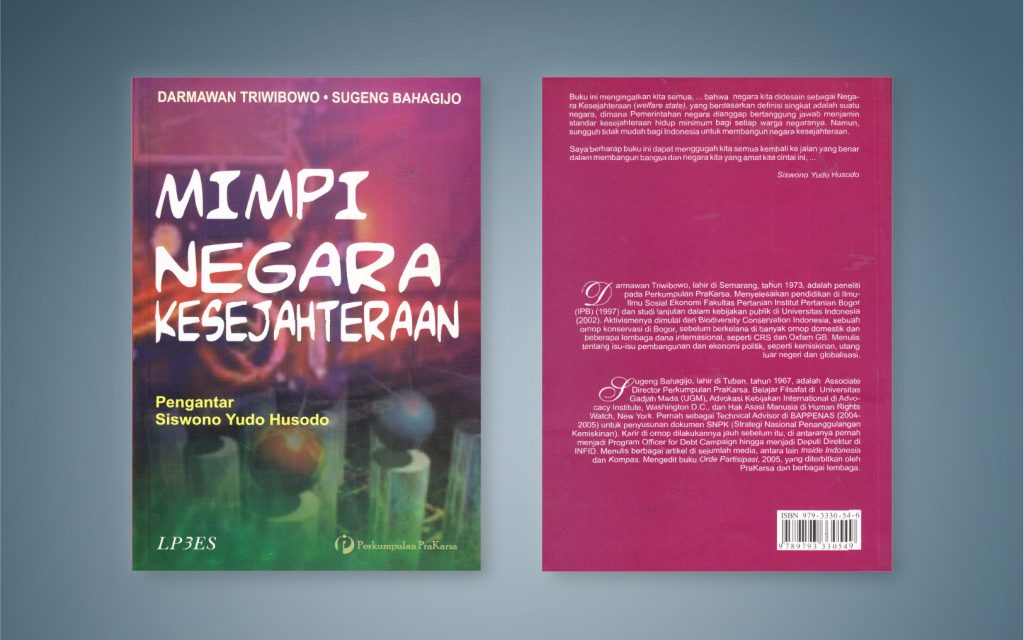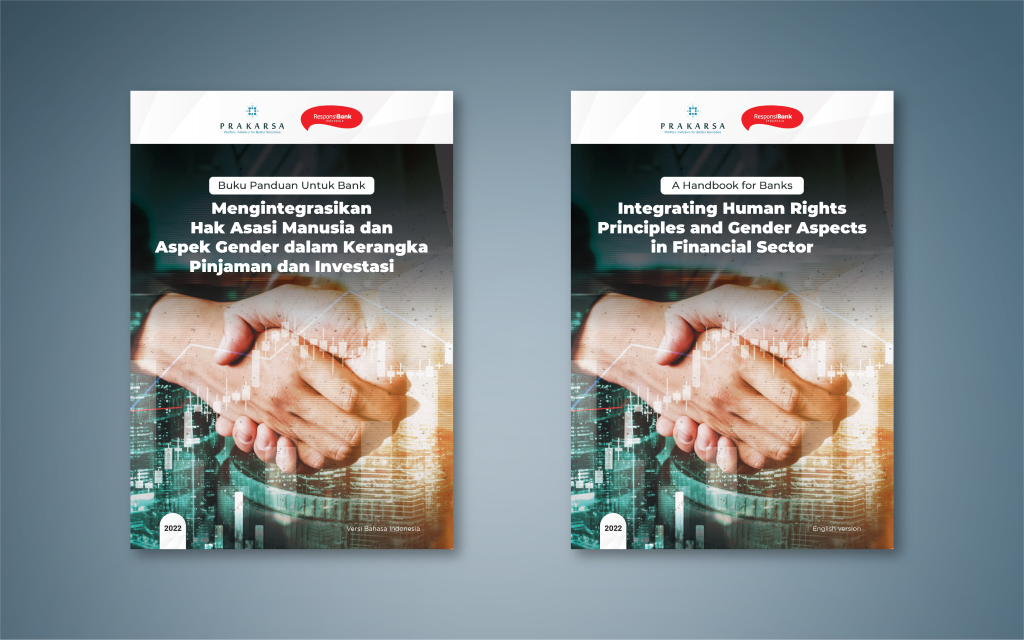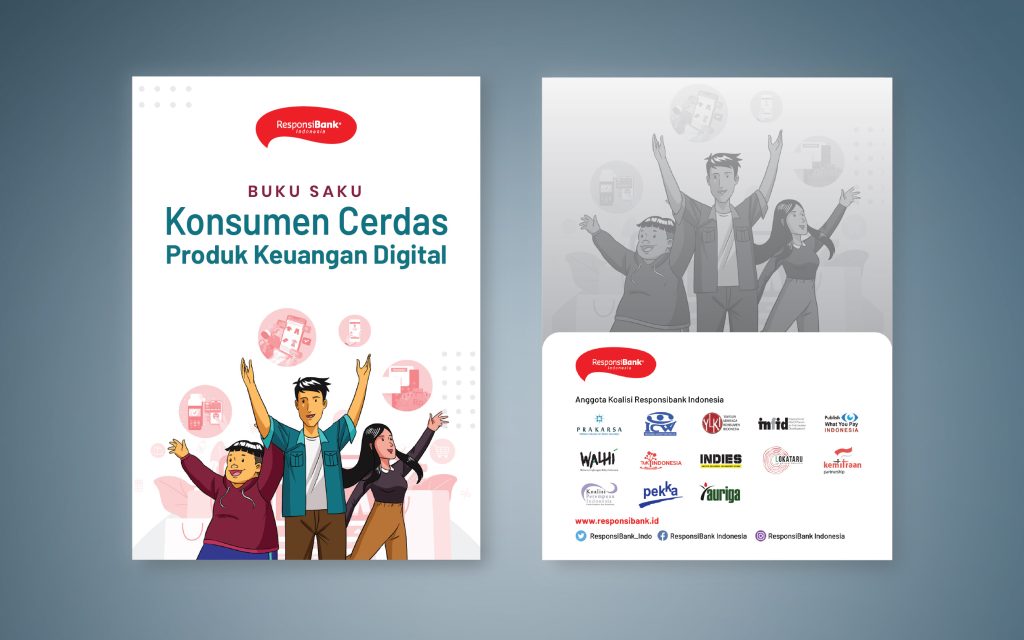
Darmawan Triwibowo and Sugeng Bahagijo
Introduction: Siswono Yudo Husodo
ISBN-979 3330-54-6
Publisher: LP3ES and Association Prakarsa, 2006
Xxi+124 pp; 15.5 x 23 cm
First Printing, July 2006
After 60 years of Indonesia's independence, the number of poor citizens is still very large. The unemployment rate is also still high, above 10 percent. In the next two decades, up to 2020, we must prevent a "lost decade" from being created and therefore we must fill it with collective efforts to reduce and eradicate poverty. With good intentions and love for the people, the Indonesian government and people still have a chance to make it happen.
We believe that the poverty of a nation has something to do with “poverty of knowledge”. Those who are poor in knowledge are those who are blind to the experiences of both other countries and the consequences of failing to find better options. The choices referred to are how to fulfill the social rights and social welfare of the majority of Indonesian citizens. Therefore, overcoming the "dry ideas" is a chore for all citizens of the nation.
It would not be wrong if Indonesia needs to continuously shower itself with more knowledge. This is in line with the 1945 Constitution which states that our goal as a nation is "to educate the life of the nation", which is nothing but a necessity for us to learn so that the soul and mind of our nation - both citizens and leaders - are virtuous and noble.
The theme of the 'welfare state' was chosen to be investigated in this book because the experience of the Welfare State is a wellspring of knowledge rich in experience. The experience of the ups and downs of the government and society in formulating policies guarantees the fulfillment of social rights and the welfare of citizens. Experience in integrating the role of the market and the role of the state, balancing economic growth and redistribution as well as experience in setting up public service and social welfare institutions that are continuously improved.
Apart from that, in our opinion, the publication of this book was prompted by the observation that in Indonesia there are almost no books written by Indonesians and in the Indonesian language about the experiences of welfare states. This book is based on a research report under the theme "The Role of the State" which is intended to understand the development and dynamics of the Welfare State. This research was supported by the Association's research project PraKarsa whose funds were supported by The Ford Foundation for two years, 2004-2006. The preparation took more than one year, with the research reference framework discussed at the Association Governing Body Meeting PraKarsa in February 2005, and then worked on by Darmawan Triwibowo and Sugeng Bahagijo. The initial draft of this report was discussed in a roundtable discussion in August 2005 in Jakarta and then the final draft was finalized in April 2006.
The publication of this book is a joint work. Many friends and colleagues have contributed knowledge and insights to the process of publishing this book. Therefore, our sincere thanks go out to Ignas Kleden, I. Wibowo, Rizal Malik, Sri Palupi, Sutoro Eko, Suhirman, Nur Iman Subono, Panca Pramudya and SUmedi Andono Mulyo who have read, provided comments, suggestions and criticisms of the initial draft of this report. This book would also not have been published without the roles of Bagus Giripurwo, Yuyun Y. Ismawati, P. Adil Marata and Ati Nurbaiti. In their own way, and in their roles as members of the Association's Governing Body PraKarsa who have given encouragement and 'approval' to learn more about the role of the state in the experiences of welfare states. Also, we are indebted to Hans Antlov who never tires of 'challenging' us with bright and sharp questions about the contribution of Indonesian social sciences, about the role of Indonesian civil society and about a better future for Indonesia.
We express our high appreciation to Mr. Siswono Yudo Husodo for agreeing to write the foreword for this book. His willingness to appreciate this book has become an invaluable intellectual splash for us at the Association PraKarsa. To Widjanarko S. from the LP3ES Indonesia Library, we express our high appreciation for your patience and support in improving the manuscript of this book so that it is suitable for reading by a wider circle of readers. To Mr. Maruto MD, Main Director of the Indonesian LP3ES Library, who has provided support and cooperation so that this book can be published and read by a wider audience.
It is our hope that the publication of this book can be a rope of our affection for the people and beloved country of Indonesia and a contribution to further research and studies for the preparation of more pro-poor socio-economic policies.



